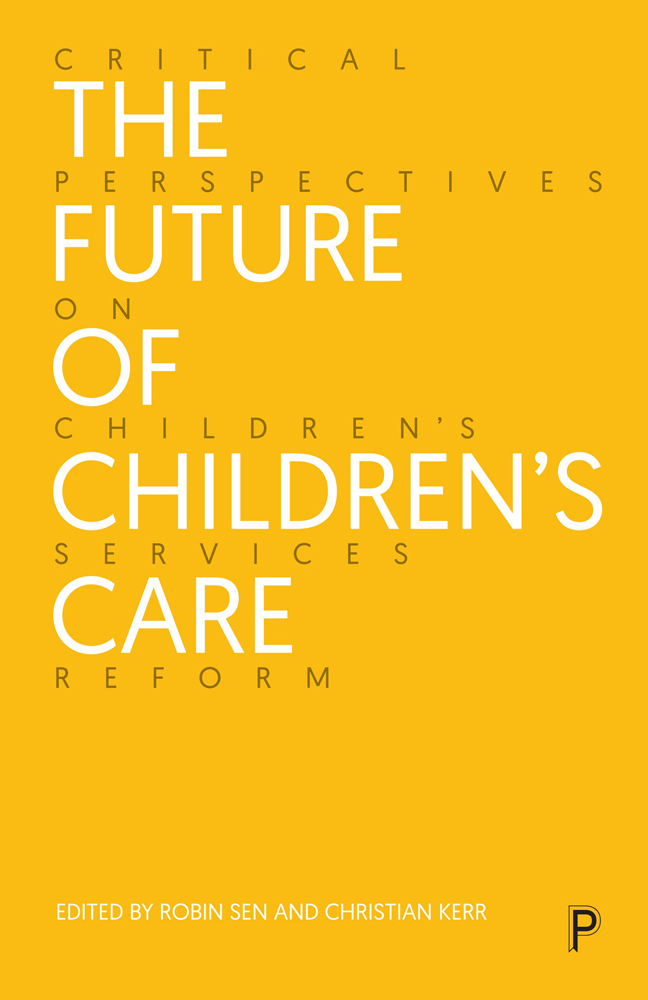Book contents
- Frontmatter
- Dedication
- Contents
- Notes on contributors
- Acknowledgements
- Foreword
- 1 Introduction: critical perspectives on children’s services reform
- 2 Where now? Children's rights in England into the 2020s
- 3 More of memes than schemes: networked propagation in children's social care
- 4 Reclaiming social work, the social work complex and issues of bias in children's services
- 5 Humane social work practice: a more parent friendly system? Hopes and challenges in the 2020s
- 6 Exploring and re-imagining children's services in England through a decolonial frame
- 7 Kinship care for England and Wales in the 2020s: assumptions, challenges and opportunities
- 8 If adoption is the answer, what was the question?
- 9 Caring for children and young people in state care in the 2020s
- 10 Protecting children: a social model for the 2020s
- 11 Conclusion: children's services reform looking back and forwards
- Index
4 - Reclaiming social work, the social work complex and issues of bias in children's services
Published online by Cambridge University Press: 23 January 2024
- Frontmatter
- Dedication
- Contents
- Notes on contributors
- Acknowledgements
- Foreword
- 1 Introduction: critical perspectives on children’s services reform
- 2 Where now? Children's rights in England into the 2020s
- 3 More of memes than schemes: networked propagation in children's social care
- 4 Reclaiming social work, the social work complex and issues of bias in children's services
- 5 Humane social work practice: a more parent friendly system? Hopes and challenges in the 2020s
- 6 Exploring and re-imagining children's services in England through a decolonial frame
- 7 Kinship care for England and Wales in the 2020s: assumptions, challenges and opportunities
- 8 If adoption is the answer, what was the question?
- 9 Caring for children and young people in state care in the 2020s
- 10 Protecting children: a social model for the 2020s
- 11 Conclusion: children's services reform looking back and forwards
- Index
Summary
Introduction
This chapter draws on a case study of the Reclaiming Social Work (RSW) model in England. We trace its links to the social work training provider, Frontline, and the government-funded centre for Evidence Based Practice (EBP), the What Works Centre for Children's Social Care (WWCCSC), to illustrate issues around the emergence of a ‘social work complex’ of close alliances between influential individuals and organisations in the spheres of knowledge production, knowledge utilisation, policy making and practice in children's services. The ‘social work complex’ is an adaptation of the term the ‘military-industry complex’ used by US President Dwight Eisenhower in his farewell presidential address of January 1961. Eisenhower took the opportunity to warn of the dangers of the overly close links that had developed between his nation's military and the defence industry which profited from supplying it. He identified the need to ‘guard against the acquisition of unwarranted influence, whether sought or unsought, by the military-industry complex’ and the possibility of ‘misplaced power’ arising from the complex, alongside the risks it posed to liberties, peace and democracy.
We draw on the concept here as metaphor. We do not suggest the stakes in children's services in England are equivalent to those Eisenhower outlined, but use the metaphor to highlight ways in which we believe the close alliances which do exist within children's services in England today exert a distortive influence on children's services policy and practice which the MacAlister Review has further entrenched (see also Purcell, 2020; Interdependence of Independence, 2021; Hanley, 2022). The close alliances of which we speak have developed alongside the greater involvement of a layer of organisations involved in children's services provision outside of local government and public universities, including newer charities, social enterprises, private companies and large financial corporations. Within this mixed provision, accountability for policy and practice decisions in children's services has in our view become opaque.
Since our argument critiques the inadequate scrutiny of, and reflection on, positions, relationships and interests within children's services, we also summarise some of our own. Both of us have for a number of years maintained a publicly critical approach to policy developments within social work in the UK, and in particular the encroachment of neoliberalism on children's services provision.
- Type
- Chapter
- Information
- The Future of Children's CareCritical Perspectives on Children's Services Reform, pp. 60 - 84Publisher: Bristol University PressPrint publication year: 2023

